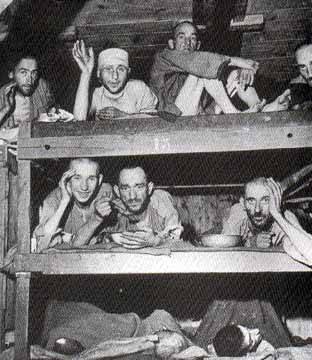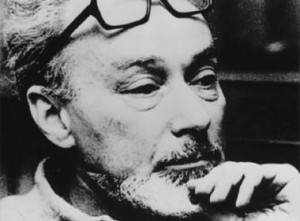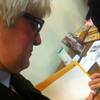NYC. Remembrance Day
Often the narrower the focus the more personal it becomes, especially when one is faced with humanity’s biggest tragedies. When a city, or a community gathers together with intent to recall the past, this simple act of remembrance becomes an action and takes new shape, and even if it reminds us of death, in a way it celebrates life.
There is a very famous scene in Steven Spielberg movie Schindler’s List that speaks louder than words: on the black and white screen, one little girl is wearing a bright red coat. Although she is a minor character in the movie, she is also a metaphor for the individual, as in a later scene among the pile of clothes of the grey mass of people, of the hundreds of fallen men, lays her little red coat and the viewer is reminded of that one specific person. The viewer remembers one color, one name: an individual.
Every year New York honors every single Italian Jew, every family who lost someone, every name. It is a service that brings together the most disparate community, and it always makes sends shivers down everyone’s spine, for it is as personal as seeing a piece of clothing in a Holocaust museum or other real images of the horrors of the time. Repeating a name ties in closely with the Jewish idea that a person’s name and their soul are closely interconnected.
Holocaust Remembrance Day falls on January 27th, the day on which in 1945 Auschwitz was liberated. This year, the Holocaust Remembrance Ceremony will be held on January 28th at the Consulate General of Italy on Park Avenue. Between 9 am and 4 pm religious leaders of different faiths, politicians, members of various Jewish organizations and NY institutions, as well as children from the Guglielmo Marconi school and other Jewish schools will alternate in reading the endless list of names of those killed. Everyone is invited to line up and read the names or just pause and listen.
To this day it is difficult to grasp the atrocity, the rational planning that went in trying to annihilate an entire “race,” the calculated industrial way of killing human beings, the lowest moment in dignity of the 20th century.
America became the primary Promised Land for those who escaped or survived the Holocaust, and it is futile to reiterate how much Jews have contributed to this country. At the same time it is always important to focus on the uniqueness of the many Italian Jews, their culture, traditions and history, for which Centro Primo Levi remains the prominent institution in NY for research and also the source for information on the following events.
There are many other events related to the Holocaust and which can deepen one’s understanding of Shoah. During these events one can hear interesting stories or point of views, remember important figures or explore the cultural and artistic mindset of Italian Jews in connection to those dark times.
The documentary Il Ragazzo di Via Sacchi will be screened at the Italian Cultural Institute on January 24th (at 6pm). It’s a film about a young man who joined the anti-Fascist Resistance.
At Calandra Institute on January 31st there will be a discussion on the very controversial topic of a memorial built in Italy dedicated to a war criminal, Fascist Commander Field Marshal Rodolfo Graziani and on the complex issue of Italian colonies.
The iconic witness of the horrors of the Shoah is Primo Levi, author of “If This is A Man,” in which he details his experiences in the concentration camps. This is a book that should be a mandatory read in order to get the entire picture of the history of the Shoah in Italy.
Also, a good starting point would be the event at Casa Italiana Zerilli Marimò, where on February 5th there will be a fascinating panel discussion on the book “The History of the Shoah in Italy,” with documents and historical essays on Italian racial laws, the European situation and the persecution.
Another recommendation is a panel at Columbia University on February 7th, focusing on the scientific experiments of the Nazis on the disabled, starting with forced sterilizations and the medical practices for those who didn’t fit perfect genetic criteria. Operation t4 involved Physicians and psychiatrist who created lethal injections, until carbon monoxide gas was found a more effective and faster method.
Jewish culture is now alive and strong, and although Jewish people are losing their last Holocaust survivors they are not losing their spirit and rich history.
This year, once again, in January, it’s important to remember every single life, for every single life counted. In the Talmud there is a saying that goes: “Whoever destroys a single life is as guilty as though he had destroyed the entire world; and whoever rescues a single life earns as much merit as though he had rescued the entire world.”
January 24 at 6:00 pm
IL RAGAZZO DI VIA SACCHI (2011) a documentary film by Francesco Momberti
Italian Cultural Institute, 686 Park Avenue, NYC
Post-screening discussion: Guri Schwarz (University of Pisa) and Tullio Levi (former president of the Jewish Community of Turin)
January 28 – 9:00 am to 4:00 pm
REMEMBRANCE CEREMONY
Reading of the names of the Jews deported from Italy and Italian territories. Consulate General of Italy, 690 Park Avenue at 68th Street
January 31 at 6:30 pm
REHABILITATING WAR CRIMINALS. THE MONUMENT TO RODOLFO GRAZIANI
Calandra Italian American Institute at CUNY
24 West 43rd Street, 17th fl.
Lidia Santarelli (Brown University), Yemane Demissie (New York University). Moderator: Andrea Fiano (journalist and former Chairman of CPL). Respondent Dr. Girma Abebe, Former Counselor, (Ethiopian Delegation to the UN).
February 5 at 6:30 pm
THE SHOAH IN ITALY: BEYOND NATIONAL MYTHOLOGY
Casa Italiana Zerilli Marimò, 24 West 12th Street, NYC
Enzo Traverso (Cornell University) and Susan Zuccotti (author of The Italians and the Holocaust). Respondent Franklin Hugh Adler (Macalester College)
February 7 at 5:30 pm
Italian Academy at Columbia University
Amsterdam Avenue bet. 116 & 118 St.
THE “UNFIT”. DISABILITY UNDER NAZISM AND FASCISM









































i-Italy
Facebook
Google+
This work may not be reproduced, in whole or in part, without prior written permission.
Questo lavoro non può essere riprodotto, in tutto o in parte, senza permesso scritto.